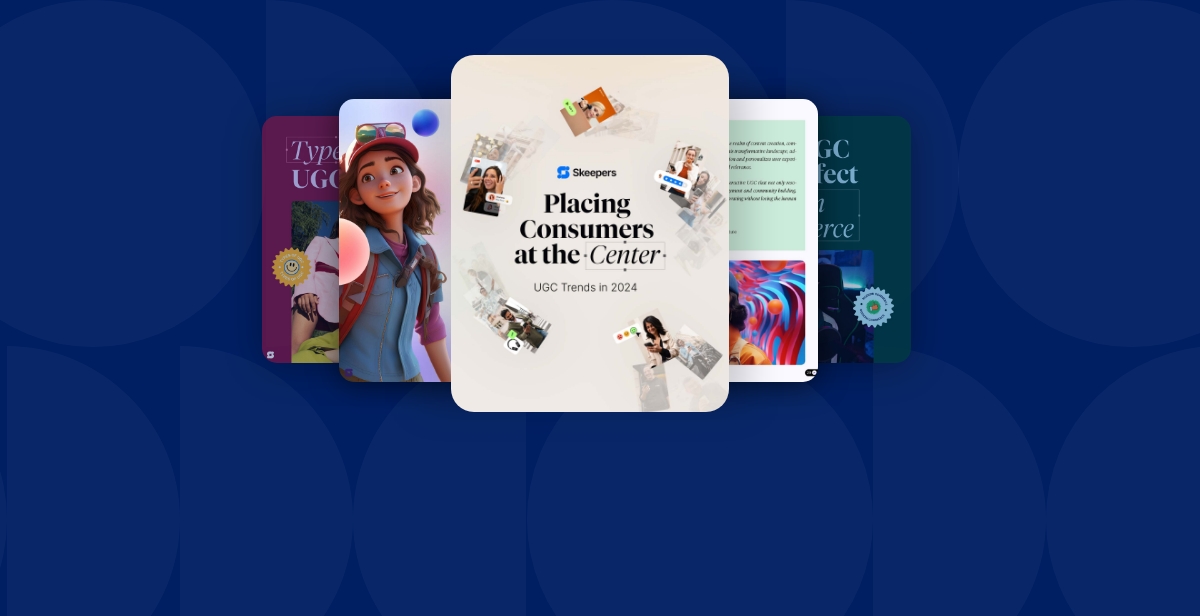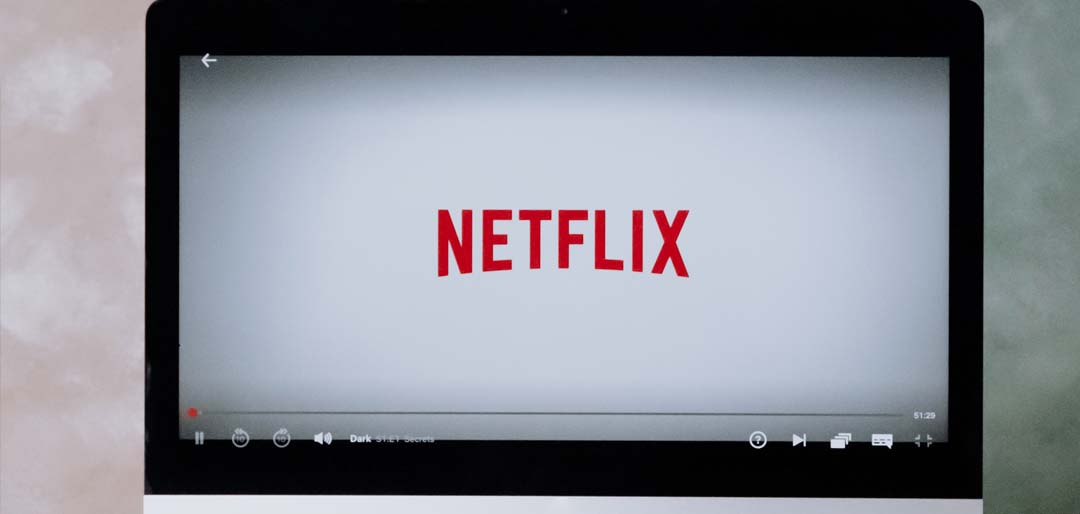Today we all know Netflix as a world-famous company and a branding guru, but it wasn’t always so. Discover how they did it! Netflix’s the worst year In 2011, no one could predict that Netflix, just two years later, would become the best performing stock of 2013 in Standard and Poor’s 500 index. The company had been given up for dead when...
Today we all know Netflix as a world-famous company and a branding guru, but it wasn’t always so. Discover how they did it!
Netflix’s the worst year
In 2011, no one could predict that Netflix, just two years later, would become the best performing stock of 2013 in Standard and Poor’s 500 index.
The company had been given up for dead when it announced in 2011 that customers should prepare for not only a price increase but also a less customer-friendly plan which separated DVD and streaming services.
Many critics saw these announcements to be ill timed and poorly conceived.
Amidst a crippling U.S. recession, the company appeared to many as greedy, cavalier and insensitive to consumer demands. And even though Netflix eventually shelved its announced plans, the damage had been done: the company lost 800,000 subscribers, its stock price dropped 77 percent in four months to $53.80 after reaching record highs of $298.73 earlier in 2011 and management’s reputation was battered.
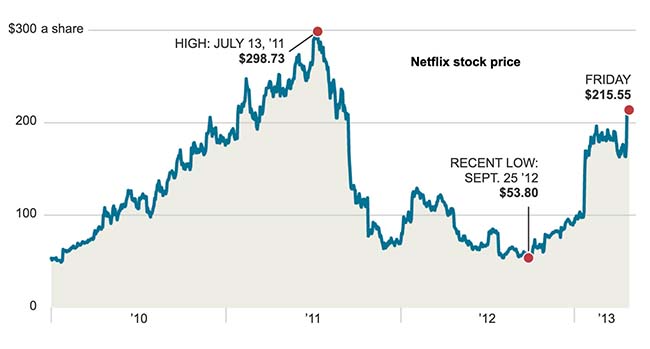
Image credit: The New York Times
But, incredibly, almost as quickly as it had been written off, the company soared to new heights with one simple decision. It listened to the feedback it had received from its customers.
Netflix creates a customer-centric strategy
Rather than emphasize its focus on the development of new services at any cost, without explicit customer input, it reinvented itself as a customer-centric company.
Discover 3 Crucial Steps to Creating a Customer Centric Business
In 2013, the company found two million new streaming customers and saw its stock triple within an eight-month window, a feat made possible with the creation of clear, user-friendly smart surveys.
Netflix, a company on the verge of becoming a cautionary example of what can happen when customer feedback is ignored, turned things around by arming itself with knowledge of its customer base.
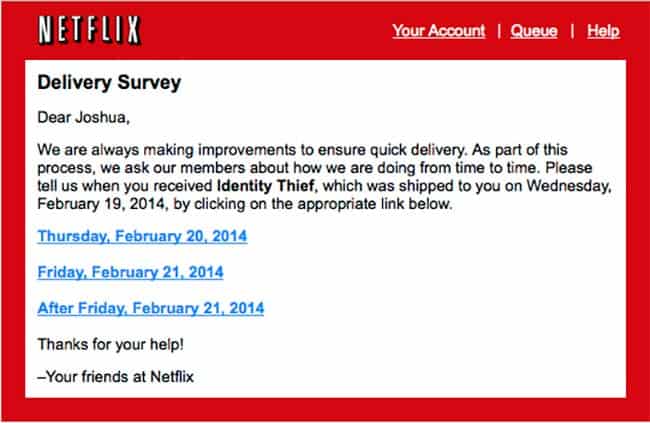
Customer insights enabled Netflix to recognize that a one-size-fits-all business model didn’t work because customers are individuals with their own individual wants and needs, a decision that has made it one of the most successful businesses in today’s market place, boasting an impressive consumer base of 50 million.
Netflix has reemerged as a Wall Street giant providing streaming service across the globe (available for streaming in over 190 countries in 2020) because it recognized that its customers weren’t just passive recipients of its products and services but actual partners in the development of its company.
By developing a customer centered business led by a handful of smart people from the Consumer Insights department devoted to maintaining customer satisfaction, it built a competitive advantage over rival company Blockbuster, the once dominant American video-rental service who in 2013 failed to break into the video streaming business it lacked Netflix’s competitive customer knowledge.
In 2013, Blockbuster closed its remaining stores. Its inability to successfully keep up with the times, lacking the essential customer knowledge needed to transition into today’s market place, has made Blockbuster a cautionary tale exemplifying what can happen when a business – a one-time giant, even – remains indifferent to customer demand.
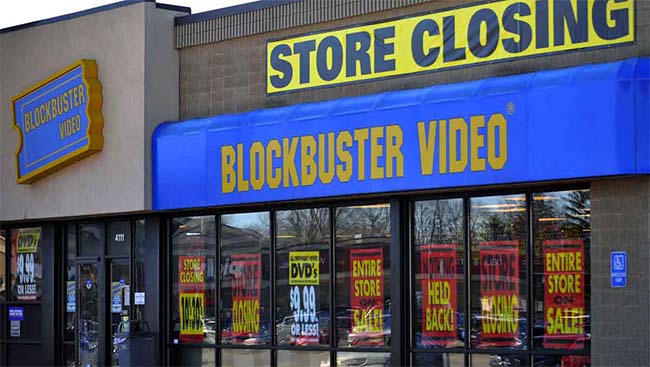
Photo credit: USA Today
Advanced knowledge of the customer proved critical to Netflix’s success. With this knowledge, Netflix gained the competitive edge, developing a much stronger understanding of emerging market opportunities before it’s competitors did.
Netflix focused on its core base of good customers, becoming a leading example of how to grow a business with customer knowledge, an essential requirement for its long-term success.
The lesson of Netflix
The lesson here is that companies must place greater emphasis upon the acquisition and utilization of customer input to provide much needed knowledge support to an organization.
Skeepers acknowledges that successful companies not only possess customer knowledge but also are able to use it to make critical business decisions.
Customer knowledge is more vital to business success today than ever before. Thus, the increasing need for customer surveys in today’s business landscape.
At Skeepers, for instance, we allow companies to design and deploy highly targeted customer surveys to users and visitors, based on who they are and what they do on a designated website, allowing for increasing response rates, highly qualified insights and better data quality.
Collected information then helps companies keep a customer database continuously up-to-date with high-value declarative data : who they are, what they like or dislike, what is their favorite feature, what they would like to see improved etc.. Ultimately, the collected information lends itself to the creation of a set of actions, whether it’s to save at-risk customer relationships or to improve the delivered experience.
Smart surveys generate the necessary consumer knowledge a company needs to thrive in today’s competitive and global business world, the sort of consumer information which is responsible for the impressive growth of one of today’s most successful company’s, Netflix.
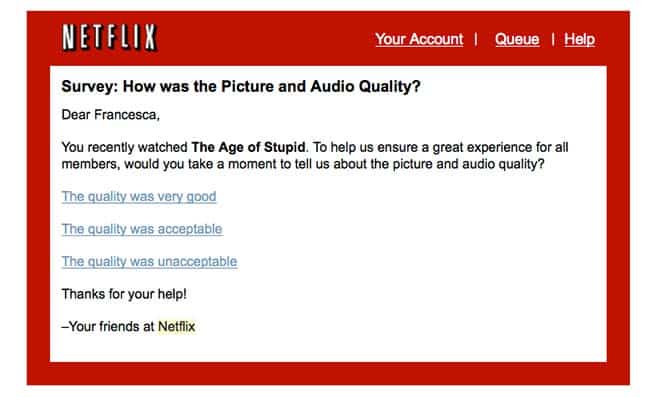
Since 2011, Netflix has continued to improve and perfect its services through the use of simple and efficient customer surveys. Narrow data points, a key feature of the company’s surveys, benefit both the customer and the company.
Consumers are provided just enough context to understand why their input is useful, never feeling frustrated or overwhelmed by too much information. And the company obtains essential information which enables them to better understand how their distribution system is working.







